YouTube 100: Chart with professional musicians
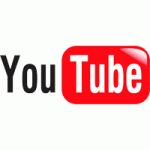
Move over Billboard. "The times they are a-changin'." Today Google launched a music chart for videos -- the YouTube 100 -- that empowers Jack and Jane Wannabe to stand tall with the likes of Lady Gaga or, gasp, Justin Bieber. The chart tracks "song popularity in user-generated and professional music videos," Chris LaRosa, Google Music product manager, explains in a blog post.
YouTube is still mostly about user-generated content, and opening information -- and possibilities -- is fundamentally in keeping with Google corporate philosophy. So it's very appropriate that Google's music chart should include user-generated videos alongside those from popular, commercial musicians.
Microsoft could lose billions in sales to Google's Chromebook
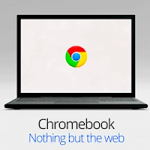
Google's Chromebook subscription program could seriously pinch Microsoft enterprise licensing revenue. The $28 per month per user fee is bargain-basement pricing compared to what businesses now pay Microsoft for software and OEMs for supporting hardware. Google could easily take $1 billion a year in software revenue from Microsoft, says one licensing expert, with the number substantially growing over several years.
Earlier today, Google announced June 15 as launch date for Chromebook, which will initially be available from Acer and Samsung with 11.6-inch or 12.1-inch displays, respectively. Prices start at $349, for notebooks with Intel Atom dual-core processors and limited local storage, running Chrome OS. But there is another acquisition option -- a monthly subscription for business and education markets. School price is $20/month per student and for businesses the aforementioned $28/month per user. The subscription price requires businesses to make a 3-year commitment. Microsoft volume-licensing customers typically also license software for three years, although a 2-year option is available.
Google Chromebook coming June 15, with $20 and $28 student and business monthly subscriptions
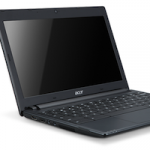
Today, at Google I/O, Google revealed that the first Chrome OS laptops, or Chromebooks, will be available for order on June 15 in the United States. Prices will start at $349 for an 11.6-inch model. Additionally, Google announced a sweet deal for students -- a Chromebook for 20 bucks a month. Assuming a nine-month school year that works out to $180. Businesses can subscribe for $28 per user/a month.
Chrome OS is a cloud-dependent operating system requiring a persistent Internet connection -- or so it seemed before today's Google I/O keynote. The user's Google account ID allows syncing of browser bookmarks and passwords with computers running Chrome and opens access to server-side Google services like Apps, Gmail and Reader.
Want Google Music? You could buy XOOM
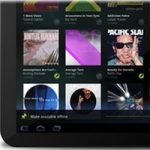
There were enough leaks in Google's streaming music plans to sink Titanic. So it was no surprise that earlier today at Google I/O, the search and information giant launched a cloud locker for your tunes. Well, for the tunes of special invitees (I/O attendees for starters) or Motorola XOOM tablet owners (the music app is included with Android 3.1). It's a closed beta. You can't attend I/O now if not registered, but you could still buy XOOM to get beta access -- that's if your domicile is the United States. The beta's only open here.
Keeping with Google's mindless marketing approach to nomenclature -- with Android and Chrome being two of the few exceptions -- for now the service is called Music Beta by Google, presumably Google Music on release. If someone got paid to develop the brand, please tell me how to get such an easy cash-producing gig. If Music Beta by Google is the product name, seriously I want the brander's job. That said, I must concede Music Beta by Google does evoke a sense of exclusivity fitting with the invitee or XOOM "Honeycomb early adopter" status.
Why is Microsoft buying Skype?
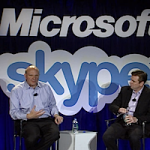
Steve Ballmer and Tony Bates explain, in a video-teleconference that took place late this morning. While this sounds cliché, the deal is about synergy around personal communications -- for work and home -- and the direct sales and potential advertising possibilities, particularly video.
Additionally, and this is something Ballmer only alludes to: Skype fits nicely into Microsoft's three-screen strategy around the TV, smartphone and PC.
iPad isn't hurting PC sales, claims NPD
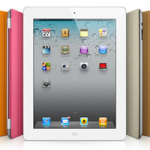
Talk about raining on the barbecue -- NPD claims iPad isn't cannibalizing PC sales after all. It's all just urban legend. Tell that to AdMob, Gartner and Nielsen, which all see a different trend.
Perhaps, it's all about positioning, or interpretation. Nielsen found that 3 percent of U.S. tablet owners had given up desktop PCs, while 2 percent gave up laptops. AdMob puts the number at 28 percent for both categories combined. NPD's survey of U.S. iPad owners falls between AdMob and Nielsen -- 14 percent for people who owned iPad six months or more and 12 percent for holiday purchasers. Those seem like pretty big numbers to me for a device only one year on the market.
Microsoft snags Skype for a hefty $8.5B

Today, Microsoft announced a definitive agreement to buy Skype for $8.5 billion. The deal is simply stunning, for the potential brand reach Microsoft will gain, the boost to its real-time communications strategy and the potential for empowering Windows Phone-powered handsets with robust video communications.
The deal is also the kind of payday venture firms dream about. Auction site eBay acquired Skype in September 2005 for $2.6 billion, which at the time seemed like an odd fit -- a square box trying to fit a round hole. Investment group Silver Lake bought Skype in September 2009 for around $2 billion. Microsoft will deliver the big payday. Can you say return on investment?
Microsoft will squeeze juicy new features from Mango on May 24
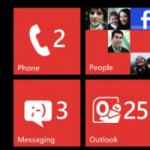
Today, I learned that I'm no VIP in Microsoft's eyes. I didn't receive one of the invites for the May 24 Windows Phone "Mango" event in New York City. Or perhaps PR people were being pragmatic, acknowledging that I'm on the wrong coast for the event. That triviality aside, yeah, the big Windows Phone next-version -- codename "Mango" -- sneak peak comes in 15 days. I guess the MIX 11 demo wasn't enough.
Invites to the event follow buzz stemming from the Windows Phone Dev Podcast Episode 15, featuring Brandon Watson, Microsoft's director of Developer Experience. Posted yesterday, hosts Ryan and Travis Lowdermilk discuss the new features, which include:
The price you pay Apple to be cool
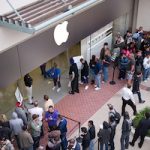
U.S. retail average selling prices for Macs and PCs reveal a startling, but ongoing, trend. Mac ASPs are higher and Windows PCs are lower than a year ago, according to NPD. The higher pricing also directly ties to brand, which affinity Apple has increased through its retail stores and success of products like iPod and iPhone. Today, Apple topped BrandZ's annual list of most valuable brands during 2010. "The brand increased in value by 84 percent to $153.3 billion," according to the report.
For Apple there is an integral relationship between brand and equity -- the value consumers are willing to pay to join the Apple Fan Club, which is more true for computers than any other product the company sells. The starting price for notebooks is $999 and $1,199 for desktops -- Apple unveiled new iMacs last week. Windows PCs are cheap, by comparison, selling for as little as $200. A surprising number of people are willing to pay more for Macs -- the Apple brand, really -- which shows up in average selling prices.
When will PlayStation Network be back up?
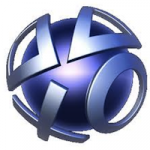
Perhaps the question should be: "If I hold my breath waiting for Sony to answer and I die, can someone sue?" Because Sony's continued promises when PSN will be back up are like the kid who incessantly promises to clean his room and never does. Subscribers grow impatient, with the vast majority answering our poll are ready to switch to Xbox 360 and Xbox Live.
Late last month, Sony promised partial PSN restoration -- gaming, music and video services -- on May 4, a pledge repeated on May 1. It's now May 8, and PSN is still down. I checked just before posting.
Are you one of the two out of 10 U.S. tablet owners who doesn't have iPad?

Yes, you're a minority. But do you feel like an individualist -- that grand defiant person who refuses to be one of the sheep? Or are you embarrassed to take your tablet out for fear the pad people will scoff at you? If it's any consolation, your numbers are growing ever so slightly -- from 9 out of 10 (based on Apple assertions) just two months ago. If there's safety in numbers, you've got a long way to go yet.
Eighty-two percent of U.S. tablet owners are pad people -- er, iPad owners, Nielsen revealed on May 5. But that's not you. You're more likely to be an "other" tablet owner than any, well, other. That category accounts for 9 percent of U.S. owners -- right, nearly one in 10. The next lot of you own Samsung Galaxy Tab (4 percent). Another 3 percent own the Dell Streak and 2 percent the Motorola XOOM. Well, so much for Android 3.0 "Honeycomb" pulling away people from iPad, eh.
Apple could pass Nokia as smartphone leader this year
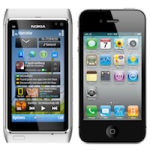
Global smartphone shipments grew 79.7 percent in first quarter 2011, according to IDC, which released numbers today. Apple moved into second place, pushing ahead of ailing Research in Motion and closing the distance on Nokia. Manufacturers shipped 99.6 million smartphones in the quarter, up from 55.4 million units a year earlier.
Most surprising is Apple's change with respect to Nokia. In Q1 2010, 12.8 million units separated the two handset manufacturers. Last quarter, Apple closed the distance to 5.5 million. Given Nokia's transition to Windows Phone 7 and Apple's continued carrier expansion, particularly China and the United States, it's conceivable Apple could match or pull ahead of Nokia during 2011.
Fujifilm FinePix X100 first impressions review

Few digital cameras have caused as much stir as the retro-styled compact now available in the United States on a limited basis. The Fujifilm FinePix X100 joins the Leica X1, Sigma DP1x and DP2x, Sony Alpha NEX-3 and NEX-5 and micro four-thirds cameras like the Olympus PEN E-PL2 and E-P2 or Panasonic DMC-GF2 in a newer class of mirrorless digicams. I used or owned the DP1, DP2s, E-P2, GF1 and X1.
However, like the Leica X1 or Sigma DP series, the X100 is eccentric -- the lens is fixed and cannot be changed. Who on earth would buy a digital camera without telephoto? I, for one. Many professional photographers for another. I'm no pro, but I have specific needs as a journalist for which the X100 is ideally suited. The X100 is the only camera I own. Whether or not it will be sufficient for my needs, or possibly yours, will be focus in my follow-up review. For now, I offer some first impressions and explain what are this camera's major benefits.
Are you a Windows expert?
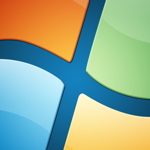
You are? Then why are you reading this? You should be hanging out at Microsoft's Windows Experts Community.
I dunno how long this thing has been around, but Microsoft blogger Paul Donnelly calls it a "new site." Donnelly describes Windows Experts Community as "a collection of online forums geared for advanced users, enthusiasts, experts and so on -- those that are doing fantastic and amazing things with their Windows PCs and other ecosystem devices. We're also rolling out a community-driven wiki where members can create and edit articles and explainers on how they've set-up their PCs, created scenarios, or established their own best practices."
If Android wins Asia, will it take the world?

That's the question to ask, following Canalys' release of first quarter 2011 smartphone shipments, today. Asia has long been Nokia's stronghold but that may rapidly change during the transition from Symbian to Windows Phone -- at a time when Asia is the world's largest region for smartphones.
Smartphone shipments to Asia grew 98 percent, to 37.3 million units, during Q1, with volumes strongest in China, India and South Korea. India has been a Nokia stronghold, with as much as 70 percent overall handset market share, as well as China.
Joe's Bio
Joe Wilcox is BetaNews executive editor. His motto: Change the rules. Joe is a former CNET News staff writer, JupiterResearch senior analyst, and Ziff Davis Enterprise Microsoft Watch editor.
Ethics Statement© 1998-2025 BetaNews, Inc. All Rights Reserved. Privacy Policy - Cookie Policy.
